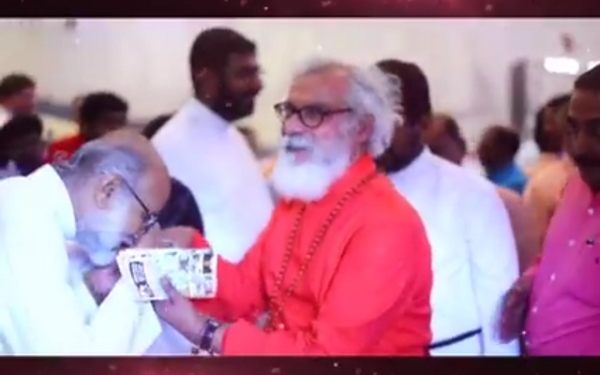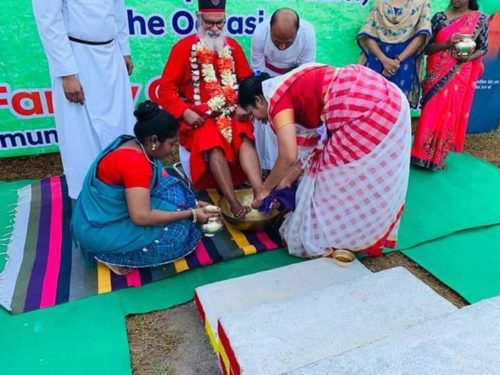In CEO and founder K.P. Yohannan’s recent “exclusive personal response” to the fraud lawsuit settlement involving Gospel for Asia, Yohannan traces GFA’s problems to a 2015 “confidential letter from a financial standards association we were part of, and of which we were a charter member.” That letter was from the Evangelical Council for Financial Accountability and outlined 17 potential violations of ECFA financial standards. In October 2015, ECFA evicted GFA from membership. To help donors understand the nature of the concerns ECFA had about GFA, I am posting the concerns one at a time with commentary. You can read all of the posts by clicking this link.
From that letter, here is the eighth compliance issue:
8. Use of funds restricted for the field for other purposes.
On June 3, ECFA discussed GFA’s claim that 100 percent of field funds are sent and used in the field. GFA staff confirmed that this was accurate. On August 24, ECFA was informed that GFA India made a gift to GFA of $19,778,613 in 2013 to complete GFA’s new office. On August 27, GFA’s staff confirmed that the funds relating to this donation were originally received by GFA as gifts restricted for the field and GFA transferred to field partners to fulfill donor restrictions.
Two important issues are raised:
A. Reallocating gifts donated for field purposes and using them to pay for headquarters construction appears to be a violation of ECFA’s Standards 7.2. GFA staff stated in a recorded GFA staff meeting that you approached the field partner and explained that GFA could borrow the funds in the U.S., at less than desirable terms, for the headquarters construction. However, a gift from the field partner, in lieu of GFA borrowing the funds, would allow GFA to complete the new headquarters and thereby save interest. Therefore, GFA would be able to send more money to the field in future years.
ECFA believes that the potential savings resulting from the GFA India gift is an inadequate basis to reallocate gifts donated for field purposes.
B. Reallocating gifts donated for field purposes contradicts GFA’s claim that 100 percent of funds are sent to the field. In fact, a significant amount of donations restricted for the field made a circuitous trip back to GFA and were used for the headquarters construction, as though they had never gone to the field. This appears to be a violation of Standard 7.1.
In a GFA staff meeting, GFA indicated the field partner took out a loan to cover the use of the $19,778,613 gift and GFA staff confirmed on August 27 that India-generated income was used to repay the loan. Our review of the board minutes did not indicate the GFA board had approved, or even been notified, of the $19,778,613 reallocation of donor-restricted gifts.
The lawsuit settlement between Garland and Phyliss Murphy and GFA included this agreement:
The Parties also mutually stipulate that all donations designated for use in the field were ultimately sent to the field.
Some, including GFA in their promotional material, have portrayed this as an admission that they did no wrong with donated funds. However, this is not the case. GFA did use donor funds in an elaborate scheme to help fund their corporate headquarters in Wills Point, TX. The donations were solicited to help needy people in India and were originally sent to “the field” but then sent back from “the field” to GFA in Texas. The ECFA letter outlines the circuitous route of those funds.
Originally, GFA leaders told staff that an anonymous donors gave the $20-million to complete the construction of the Wills Point headquarters. Then, in a staff meeting (that I first revealed on this blog), Yohannan and David Carroll disclosed to the staff that a field partner under the authority of Believers’ Church gave the money to GFA in the U.S. In that staff meeting, the staff were not told that the funds were originally given by donors.
GFA was so worried about the truth coming out about this point in the ECFA letter that they threatened to sue my former blog host, Patheos, to remove the staff meeting audio. GFA is a nonprofit organization which requires a certain transparency. They claim to maintain financial integrity but threatened to sue to attempt to cover up aspects of their financing concerning their headquarters.
Thus, one of the key reasons GFA lost their membership in ECFA was reallocating field funds back to headquarters. So the funds were sent to the fields, but they didn’t stay there. If the Murphy suit had gone to trial, there is no doubt in my mind that the Wills Point headquarters transaction would have been a central component of the plaintiffs case.
Next: GFA’s financial statements presentation of restricted funds.


